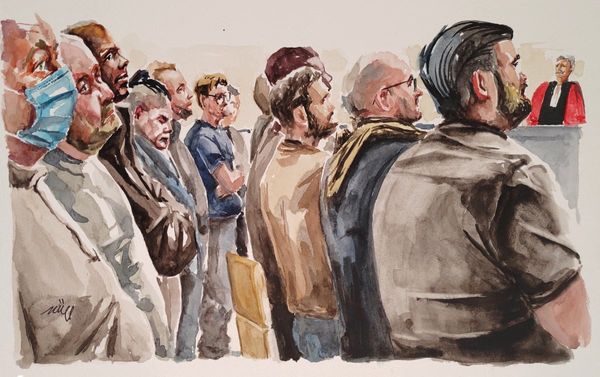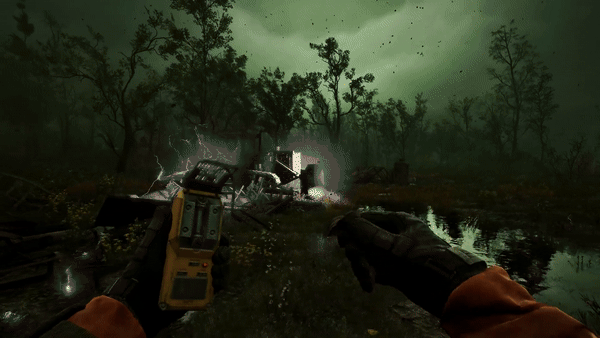
I enter a hollowed-out factory with a wide open garage entrance. I explode: a cleverly hidden trip wire worked as intended on an unsuspecting intruder. I reload my save, carefully disarm the trip wire, and make it far enough to enter the heart of the factory. A set of stairs leads to a second level where I overhear the steps of an enemy soldier. One step onto the stairs and I explode. Another trap, this time connected to a pair of gas tanks. I reload. This time I account for all the traps, only to be one-shotted by the enemy, who I now know has a gun that makes my salvaged rifle look like a peashooter.
I reload, making it past the traps and this time triumphing over the perched soldier. My earlier observation was correct: looting his body rewards me with a sniper rifle and a machine gun compatible with the laser sight I found earlier. Nice.
I carefully leave the factory (filled with more trip wires) with my haul, ready to face the day. As the sunlight hits my eyes, I’m immediately hounded by a pack of gross mutations called “fleshies.” I flee, hoping to conserve my bullets only to see my radiation levels skyrocket. I fumble around trying to crack open meds before it's too late, only to be snatched by a gravitational anomaly that kills me quicker than any of the dangers I was actually aware of. I reload.
This is what progress in S.T.A.L.K.E.R. 2: Heart of Chornobyl often plays like. I predict many players will bounce off of its punishing opening moments. It has zero concern about making things approachable. But those who make it past its trial-by-fire approach to open-world design will be rewarded with an experience unlike most other shooters. Unfortunately, moments of brilliance organically learning how to navigate the deadly wasteland are throttled by bizarre bugs and performance issues.
Into the Zone
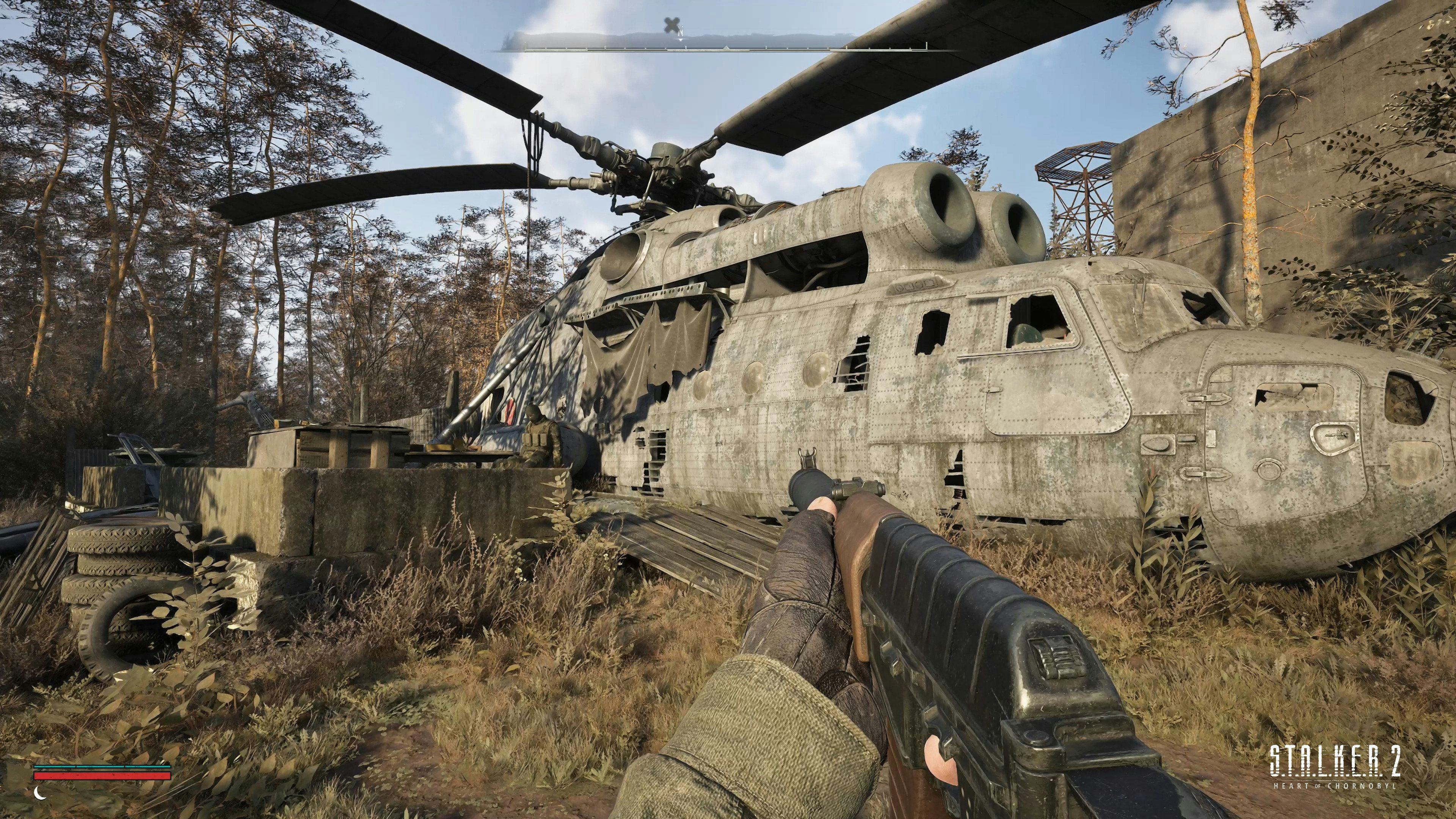
S.T.A.L.K.E.R. 2 is a first-person shooter with heavy survival elements, a sequel to the 2007 PC cult classic S.T.A.L.K.E.R.: Shadow of Chornobyl. Loosely based on the science fiction novel Roadside Picnic and Andre Tarkovsky’s brilliant and renowned film adaptation, Stalker, the series keeps the feeling of a deadly place indifferent to life, while changing the setting from an alien-made disaster zone to the human-wrought aftermath of the 1986 Chernobyl Disaster. In this version of events, a second disaster took place 20 years after the first incident, seemingly breaking the fabric of reality in a fictional version of the real-life Chernobyl Exclusion Zone. In the sequel, players assume the role of Skif, one of many Stalkers who explore this sealed-off region for personal gain.
The story here ties into investigating what exactly happened after the first game. But it's presented through forgettable guys handing out a series of missions. As a newcomer to the series, this overarching plot left me in the dust fairly early on. With 15 years since the Call of Pripyat expansion was released for the first game, it would’ve been nice to see the sequel’s narrative be more welcoming to newcomers. Instead, there are contextless mentions of concepts I had no clue about. There are dialog options where you can ask NPCs what a “Monolithian” or a “Bloodsucker” is.
The game’s hazy story is a sore spot. But the crux of the experience is about survival gameplay. And in that department, S.T.A.L.K.E.R. 2 mostly delivers so long as you have the patience.
The Ways of a Stalker
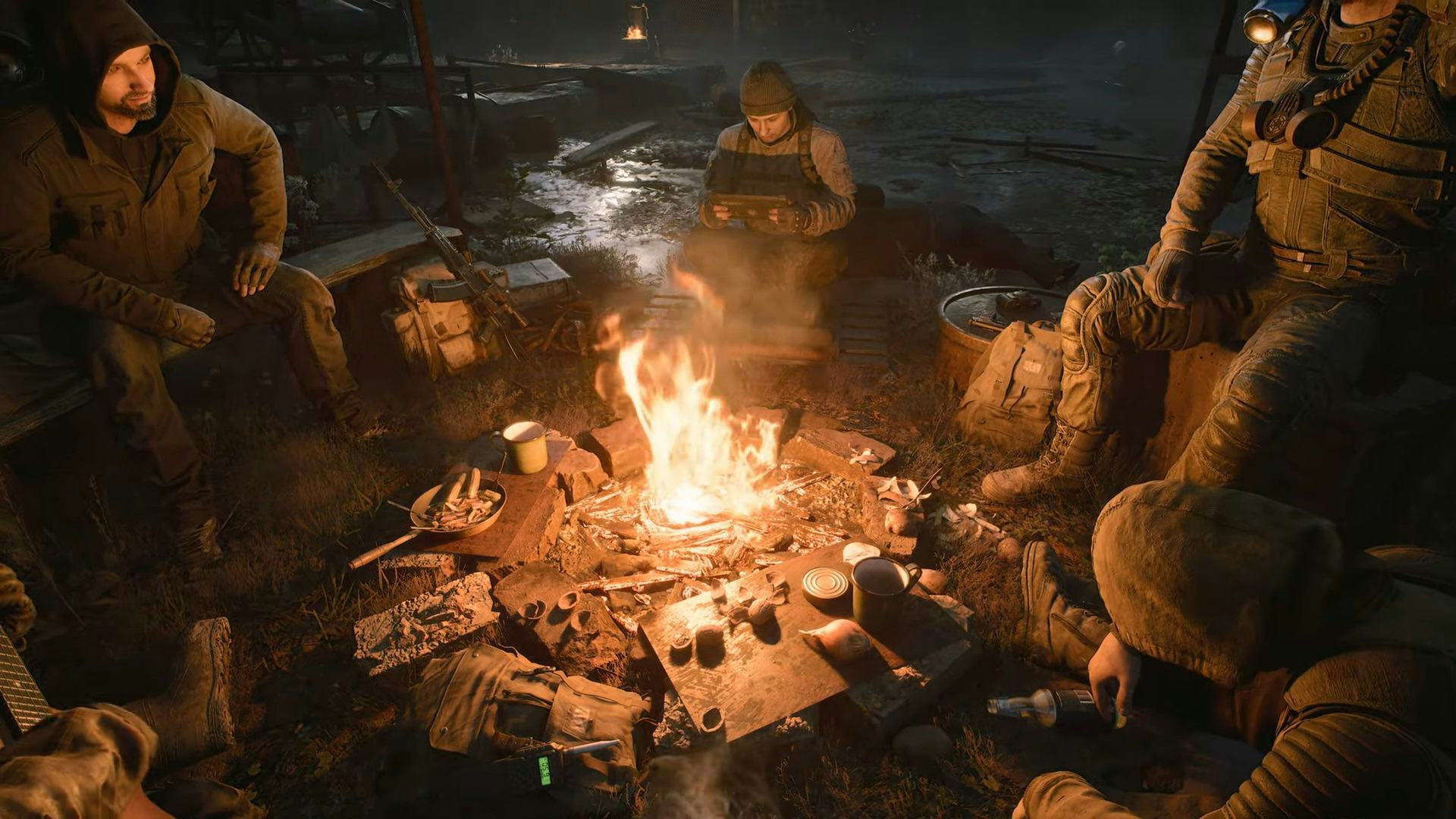
S.T.A.L.K.E.R. 2 is a very slow and punctilious shooter. Players start with little equipment or knowledge of The Zone. But they must learn, scavenge, and make peace (or not) with other inhabitants in the zone. Earning money and upgrading their gear is the other big pillar of this experience. S.T.A.L.K.E.R. 2 reminded me of both Far Cry 2 and Fallout 3. It has the former’s minimalism and divisive need to hurt the player’s chances of success, and the latter’s satisfying loop of exploring interesting locations on the horizon to find useful loot and side quests. But progress in S.T.A.L.K.E.R. 2 feels so much more meaningful when you can die in so many different (and trivial) ways.
You will die a lot. The tutorial is comedically atrocious. Emergent gunfights between factions are as confusing and chaotic as I’d imagined they are in real life as most factions are subtle and reserved in their fashion choices. Creatures are plentiful and can off you in just a few hits. Packs of dogs and radiated rats are especially lethal as they attack in fast-moving swarms that early-game firearms can’t keep up with.
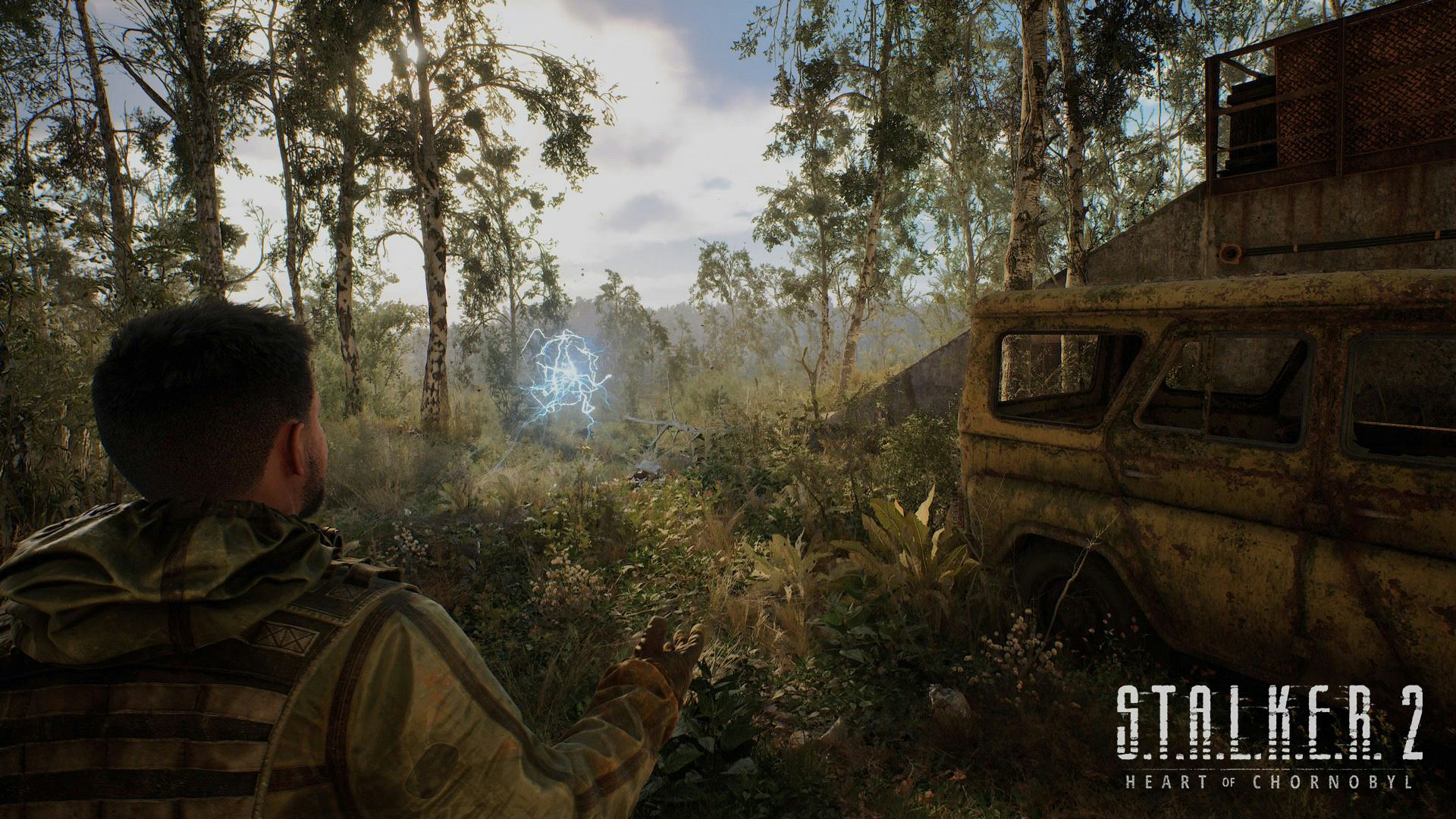
The environment is equally harsh. Radiation can drain your life and energy. Strange weather phenomena will murder you instantly without adequate shelter or protective clothing. Anomalies like gravitational spheres and Electro anomalies ensure that actions as simple as walking forward need to be done with deliberation. It was hours before I fully grasped how quickly things could fall apart if I didn’t observe every detail of my surroundings at all times.
Trial and error is the primary way to learn in this game. The first time I encountered the Electro anomaly, I spent a full hour figuring out the right way to bypass these environmental traps and died 30 times in the process. By the end of it though, I gained invaluable knowledge.
Discovering how to survive these anomalies doesn’t always feel intuitive though. One particularly gorgeous anomaly has players trying to avoid passing out like the ill-fated explorers that preceded you. While the concept is great, getting through it is a matter of brute forcing past its effects by hoarding and consuming a particular resource. A more considered, puzzle-like approach would’ve been more memorable even if its striking imagery remains in my head days later.
Like A Geiger Counter
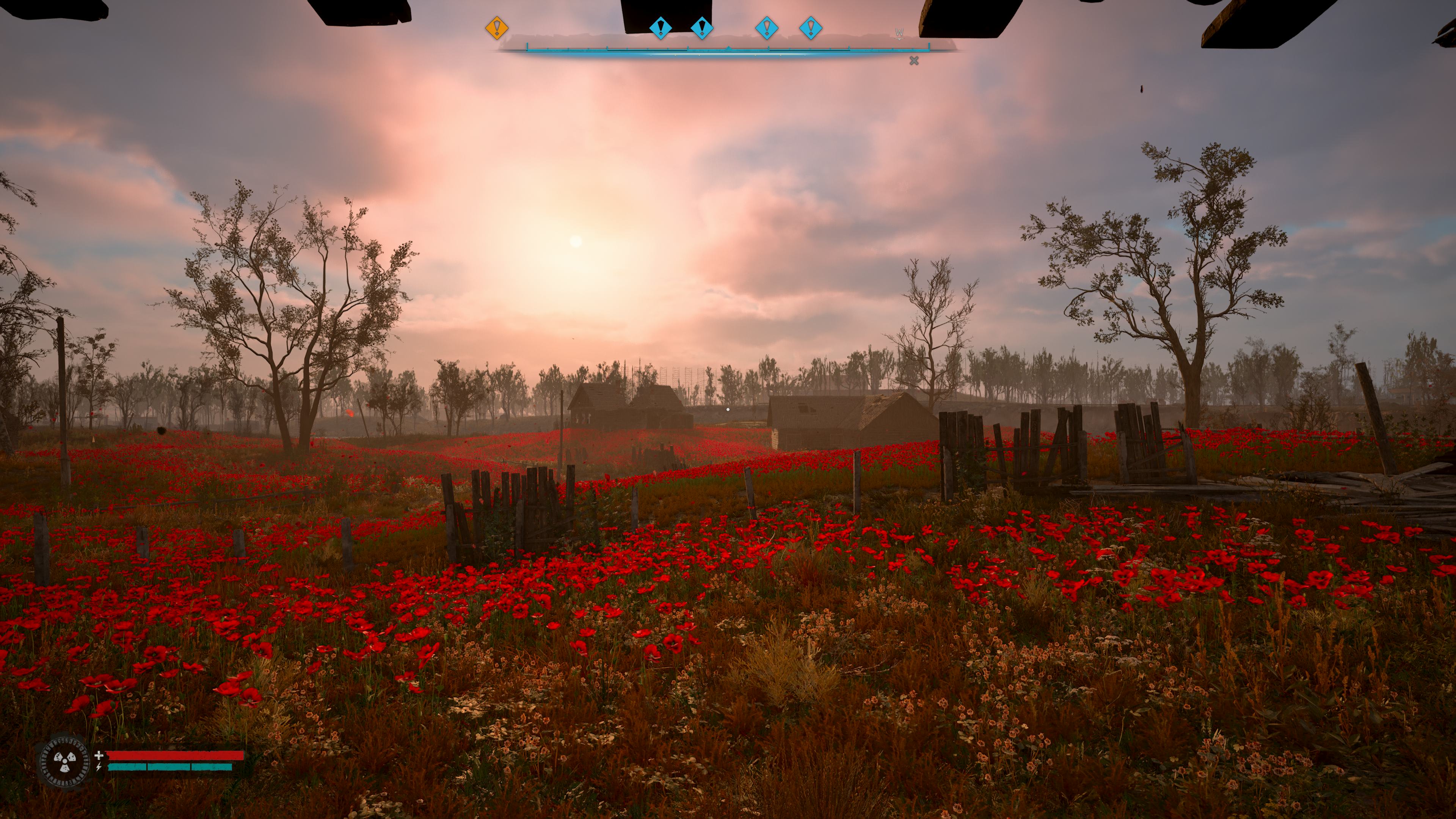
S.T.A.L.K.E.R. 2 is at its best when its disparate survival mechanics start clicking. I learned the hard way the severe consequences of being unprepared for the wild. In the closing moments of an early mission, I found myself pinned down by enemies with fewer than 30 bullets between my three firearms all because I forgot to stock up on bullets beforehand. Finishing the job took equal parts precision, luck, and cowardice as I sprinted past enemies toward freedom.
The game is full of these “ah-ha!” moments, even if they come after a catastrophic failure. There was a noticeable difference in how firefights played out when I learned how to be smarter about my shots, movement, and positioning. World traversal was smoother when I was mentally prepared to ensure safe passage between towns and how to use anomalies to my advantage during combat. I made a note to periodically check my backpack, tossing out items I don’t need to prevent over-encumbrance on the road. And I never left friendly zones without visiting my local vendor for a thorough restock.
Don’t get it twisted: players will be constantly fighting for their lives regardless of which weapons they find or what improvements they purchase from vendors. But a dozen hours in, I found immense fun in the tension of trying to avoid death. It’s masochistic, stressful fun reminiscent of hardcore shooters like Arma 2 or even high-level play in Call of Duty: Warzone. But fun nonetheless.
Bugging Out
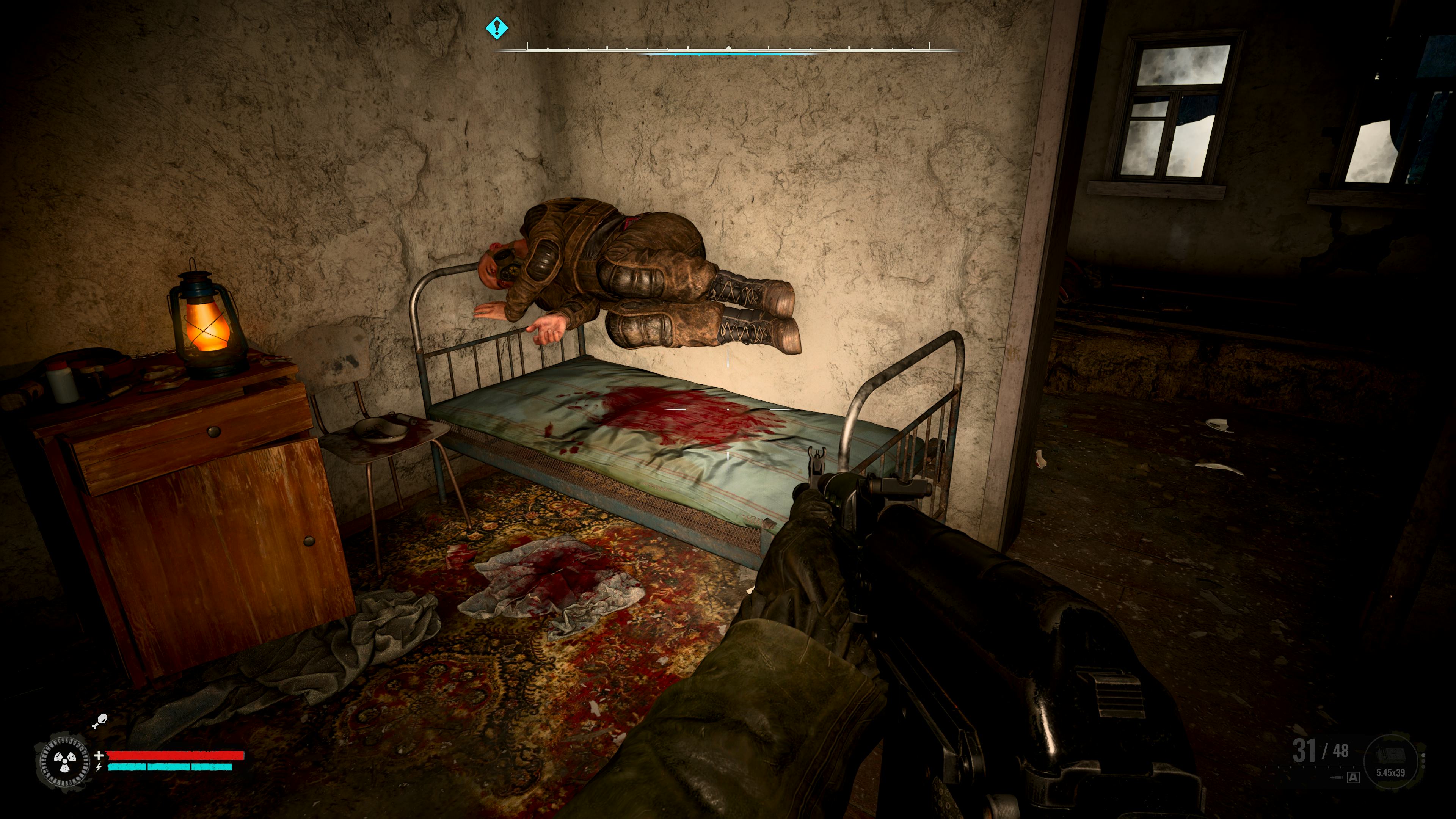
While zero handholding can feel refreshing for an FPS in today’s landscape, the “frustration by design” approach is often bogged down by the game’s many bugs. There are plenty of instances where I was confusing a progress halting bug with purposely obtuse mission design. Only when I decided to reload a recent save did I understand that the wooden planks blocking a door simply wouldn’t break, or an item I picked up wasn’t slotting into the necessary receptacle.
Progress halting bugs like these aren’t the only ones in the bunch. Enemy AI is solid most of the time, but feels broken in select areas. One mission had a pack of at least a dozen rats jump a player when they reached the foot of a ladder. Only when I jumped to a nearby ledge for a better angle did I realize the horde sat T-posed on the other side of the ladder unmoving and clipping through each other. Since they only reacted if I stepped on the ground I picked them off by shooting this blob of unreactive enemies until they were no longer a threat. In moments like these, it's hard to tell if this encounter was designed like this, bugged, or some combination of the two.
On another mission, an NPC trapped me in a room when he refused to move from its only exit. During stealth sections, enemies would suddenly start detecting me through solid walls. My flashlight would occasionally not activate and swapping weapons from the menu would simply stop working. On the performance end, things were equally rough. I found the game’s Fidelity mode unplayable before the game’s humongous day one patch (134 GBs!) But even afterward, interior levels were rough on the eyes and would hurt playability during tense encounters. Playing in performance mode is the way to go until further patches are inevitably released.
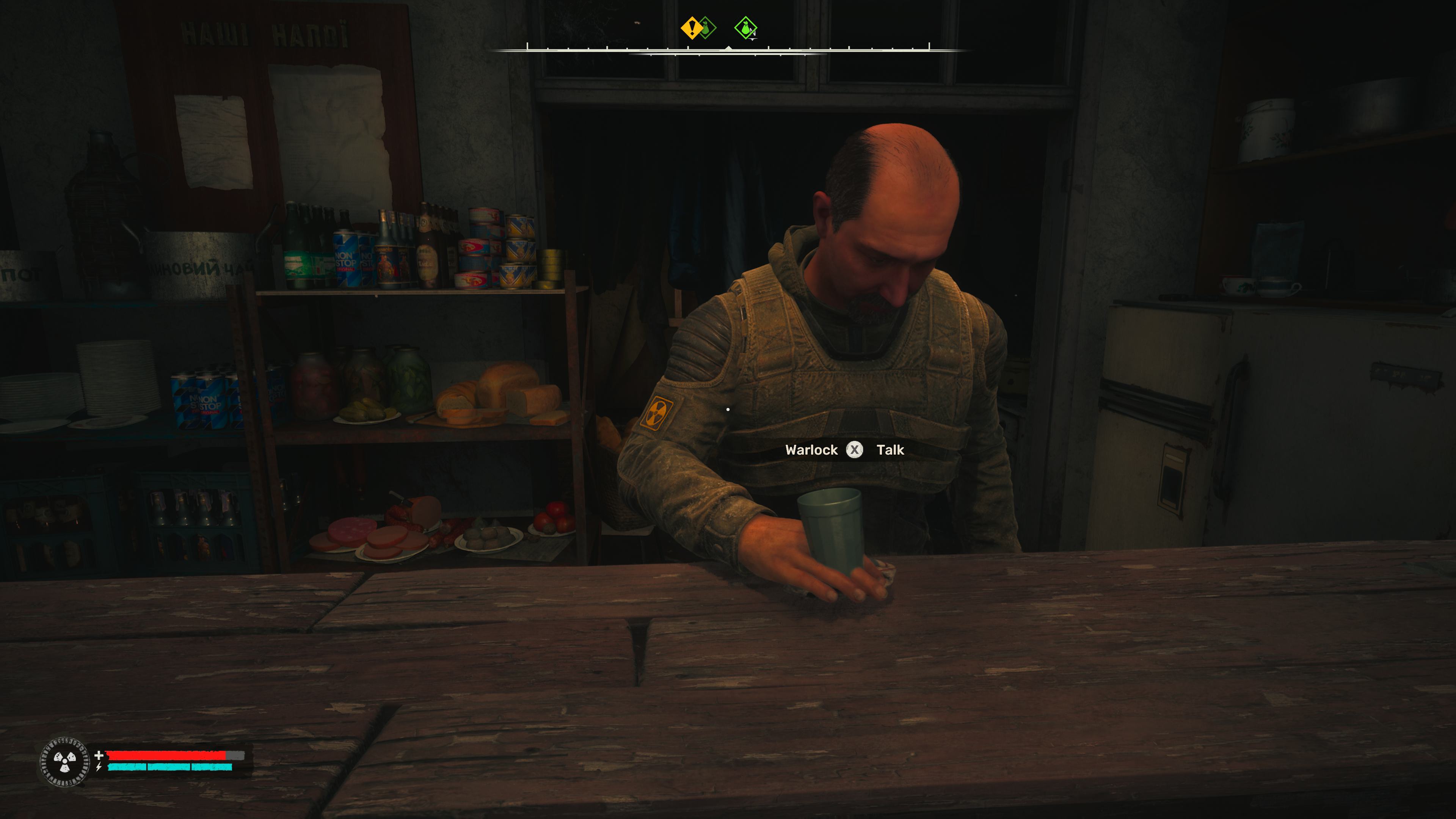
It should be noted that S.T.A.L.K.E.R. 2 was made under some incredible circumstances. As documented in the eye-opening feature War Game: The Making of S.T.A.L.K.E.R. 2, Ukrainian developer GSC Game World delivered S.T.A.L.K.E.R. 2 amid an invasion of its country in 2022. The team was forced to halt, relocate, and restart development in the aftermath. It even lost a member of its development team in the ongoing conflict overseas. It’s impossible to not think about the impact that dire, real-world circumstances likely had on the game. It’s astonishing to see what this team accomplished in six tumultuous years, especially when the game is firing on all cylinders.
S.T.A.L.K.E.R. 2 is by no means unplayable, at least on Xbox Series consoles. For sickos who like this style of hardcore game, the rough state of things will be easier to overlook. But for everyone else, the lack of polish is a constant reminder of how tumultuous the game’s development likely was.
Just short of greatness
There’s a wonderful game tucked away underneath S.T.A.L.K.E.R. 2 impenetrable surface. When riding high on the ability to go 15 minutes without dying and surviving back-to-back enemy encounters, it works as developer GSC Game World likely intended. At a time when gamers are more willing than ever to play games that challenge them to be more deliberate about their actions, S.T.A.L.K.E.R. 2 will undoubtedly find its audience for years to come as its predecessor did. For fans of the source material — there’s an added layer of artful frustration that mirrors the nihilistic world set forth by the authors.
With the inevitable mod scene, expansions, and patches that come along will only improve the solid foundation here. But as it stands now, the vanilla version of the game is more frustrating than it should be, oftentimes not by design, but by the lack of polish that pervades its world.
7/10
S.T.A.L.K.E.R. 2: Heart of Chornobyl is available on Xbox Series X/S and PC. Inverse was provided with an Xbox Series X copy for this review.
INVERSE VIDEO GAME REVIEW ETHOS: Every Inverse video game review answers two questions: Is this game worth your time? Are you getting what you pay for? We have no tolerance for endless fetch quests, clunky mechanics, or bugs that dilute the experience. We care deeply about a game’s design, world-building, character arcs, and storytelling come together. Inverse will never punch down, but we aren’t afraid to punch up. We love magic and science-fiction in equal measure, and as much as we love experiencing rich stories and worlds through games, we won’t ignore the real-world context in which those games are made.
